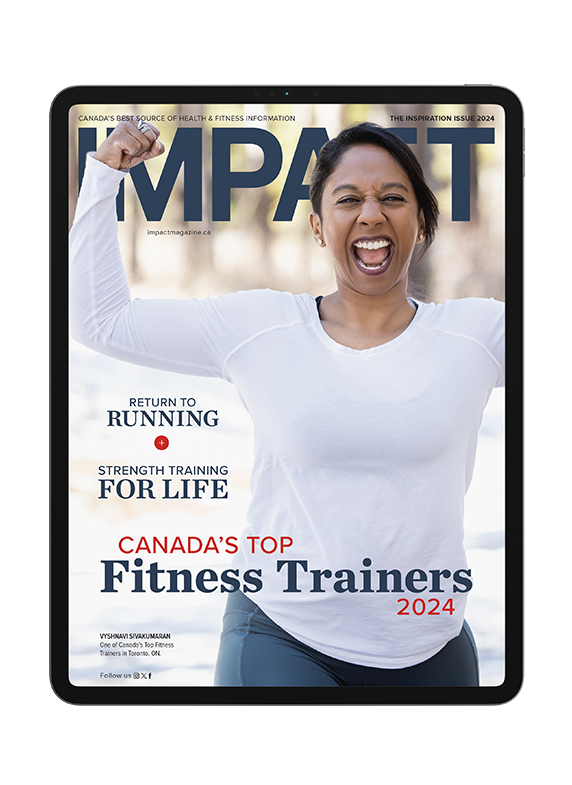Shame is defined at dictionary.com as “a painful feeling of humiliation or distress caused by the consciousness of wrong or foolish behaviour.” Stigma? That’s “a mark of disgrace associated with a particular circumstance, quality, or person.” So why the hell do women feel either of those things about menopause?
While societal norms are shifting and conversations surrounding menopause are beginning to be more commonplace, it doesn’t necessarily mean that feelings of shame and stigma have dissipated.
In fact, a recent study published in the Journal of Women’s Health reported that 37 per cent of menopausal women said they felt shame related to their menopause symptoms, and 83 per cent reported feeling stigma associated with symptoms. “Despite feeling youthful at heart, facing the realities of aging can be complex, challenging, frustrating, unexpected and downright painful,” says Rebecca Garland, certified menopause health and fitness specialist and the owner of Elan Performance Inc., a coaching company offering coaching, fitness and nutrition to women in midlife.
Ageism and the Illusion of Control
Delving into the root causes of lingering shame, ageism and sexism play significant roles. Popular culture often glorifies the young and ridicules the old, placing young women on pedestals and dismissing older women. Despite societal progress, internalizing these biases can be challenging.
“Menopause is often portrayed as a decline in youth and femininity, rather than a powerful life stage,” says Garland. “This perspective is further reinforced by the negative archetypes often ascribed to menopausal/post-menopausal women, as well as the incessant anti-aging marketing that we receive daily.”
As active and athletic women this can all hit harder. We’ve come to expect that our bodies will always look and behave a certain way that is in our control: You lift weights and have muscle tone—end of story. Except when it’s not. The physical changes that happen during menopause make us feel ashamed because we feel like we’ve done something wrong. In one study titled “Body Image, Aging, and Identity in Women Over 50,” participants expressed this over and over, with one woman summing it up:
“You wake up one morning and your face is sagging. You develop an inner tube around your middle that wasn’t there before. Your skin turns dry. The earlobes get longer and the nose gets bigger. Your breasts droop. You start sprouting whiskers. Cellulite seems to spread everywhere. Bruises and veins start to cover your legs. You have difficulty remembering simple things,” commented a 57-year-old woman.
Another noted how feeling ashamed can lead to even more shame. “I am ashamed of my aging body and ashamed that I am ashamed,” said the 58-year-old. “I believe women pay an enormous price for cultural biases related to gender and age.”
But what if instead of feeling as if we’re at the end of the line, we shift the narrative and view this time in our lives as simply a footnote in an otherwise tremendous chapter? Here’s how we can shake the shame and stigma.
Focus on strength and health, because feeling strong and healthy will help you feel more in control.
Control Your Controllables
The menopause transition can leave us feeling very out of control as we burst into a cold sweat at 2:00 a.m., watch our body shapeshift out of nowhere, and can’t remember the word for that flat metal thing we cook eggs on.
But we’re not without agency, and there are many tools at our disposal to help us get a firmer grip on the wheel: Find a menopause-informed healthcare provider to help you get your symptoms under control. Adjust your exercise and nutrition to work with your changing physiology.
Garland recommends adapting your exercise routine to tackle intense workouts earlier in the day to accommodate energy levels and sleep quality, incorporating heavy resistance training to maintain bone density and metabolic health, and implementing short HIIT sessions that’ll keep you from unnecessary stress and injury. Furthermore, she says nutrition can be a game-changer in this stage of life. “Proper hydration can help alleviate skin dryness, dry eyes, muscle cramps, and even night sweats,” she says, noting that upping your water is just as important as reducing caffeine and alcohol. And in addition, “Colorful, well-balanced, whole-food meals become more essential than ever, as do certain supplements,” she says.
Focus on strength and health, because feeling strong and healthy will help you feel more in control.
Set Goals and Make Plans
Many women reach a certain age and think their best years are behind them. They feel like they’re “too old” (cue the displaced shame) for any number of things. But, as Melanie McQuaid, who recently made history qualifying for, competing in, and completing the professional field for the Ironman World Championships at age 50, said during a Feisty Menopause podcast, “There are certain things that you only get at certain points in your life. You only get to turn 50 once. There’s no point in looking behind and worrying about who you were. Look at the opportunities you get to experience in front of you.”
Each age brings opportunities to learn, grow, try new things, and improve. Sign up for something new and exciting like a multi-day hike or kayaking sojourn. Hire a coach to help you improve in the sport you love. When you make plans and live forward, you give yourself the chance to feel joy, accomplishment, and pride—the opposite of stigma and shame.
That connection to mental wellness and self-care is something Garland echoes. “Stress management, sleep, rest and active recovery activities are crucial for alleviating brain fog, and supporting mental clarity, alertness, energy, healing, rebuilding tissues and rejuvenation,” she says.
Create Your Community
The tide is turning on the menopause conversation as more women in positions of power and influence talk openly about it. That’s good. It helps erase the old stigma and related shame. But that doesn’t mean you need to sit there and get blasted by the firehose of images and information coming at you, whether it’s well-intentioned or not.
You have the power in your thumbs to follow and unfollow at will. Follow active, like-minded women and accounts who inspire and help inform you. Unfollow those who leave you feeling less than or like you need to spend too much money to be something you’re not. You’ll be surprised how much better you feel.
Let It Go
Menopause is a great time to free yourself from mirrors, marketers, and those who want to keep you forever fretting about attaining some idealized image that doesn’t exist. This endeavour is easier said than done, of course—which is where giving yourself space and grace will come in handy. Missteps will happen, and there will be days when ageism and sexism and many other isms will get the better of you. That’s okay—tomorrow is another day. Keep following the path to reduce the negativity and turn up the volume on the positivity and possibility of this time of life. The effort in and of itself is worth celebrating.
“By bringing this important conversation into the light, we dissolve the shame,” says Garland. “By reframing the narrative around menopause to focus on a metamorphosis that invites wisdom, maturity, and a new phase of liberation, reconnection, empowerment, and rising, we can invite an entirely new and transformative experience.”
This article includes excerpts from “What’s the Deal with Shame and Stigma about Menopause?” from FeistyMenopause.com.
You may also like: Winning The Battle

Read This Story in Our 2024 Inspiration Issue
Read about our 2024 Canada’s Top Fitness Trainers – our top 30 from across Canada! How to Hire a Personal Trainer, The Dangers of Overtraining, Return to Running After Illness, Easy Vegan Garlic Noodles and more!
















